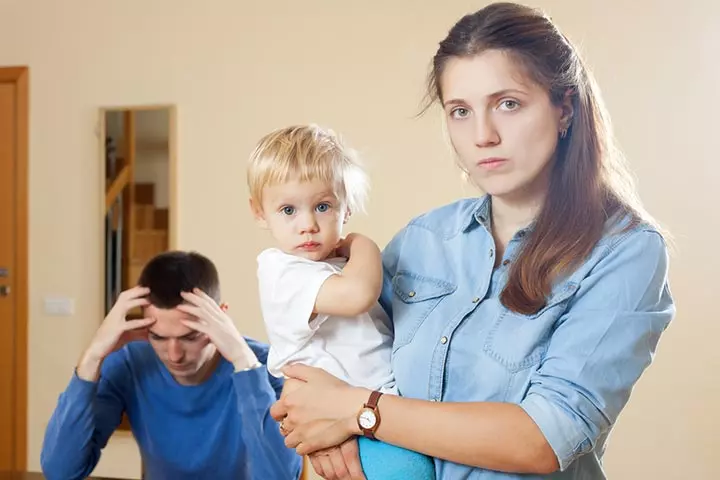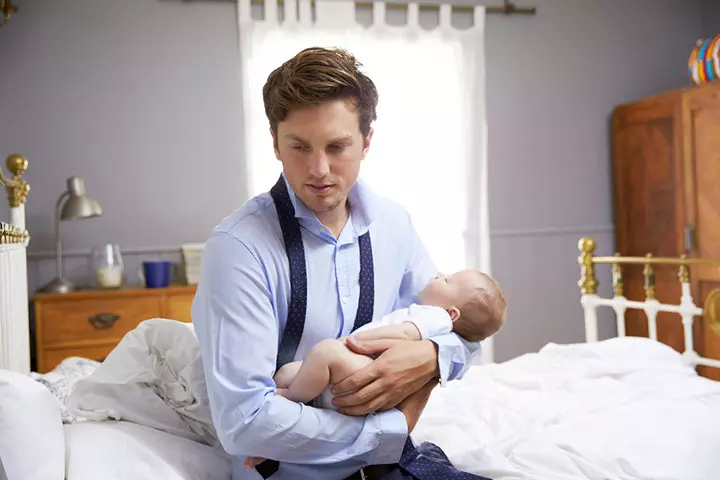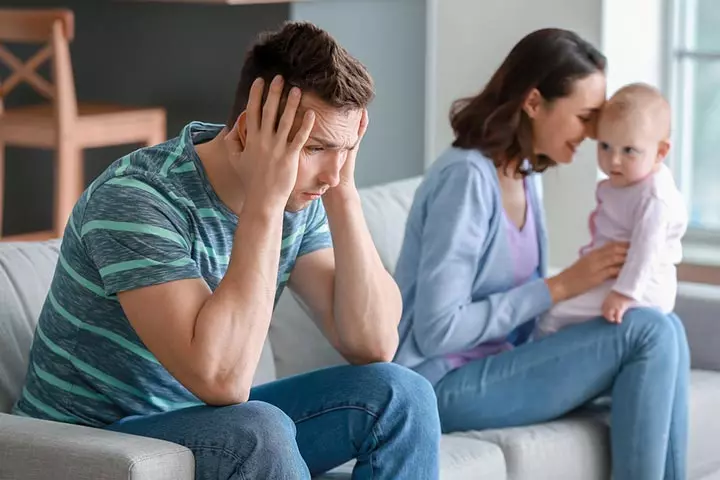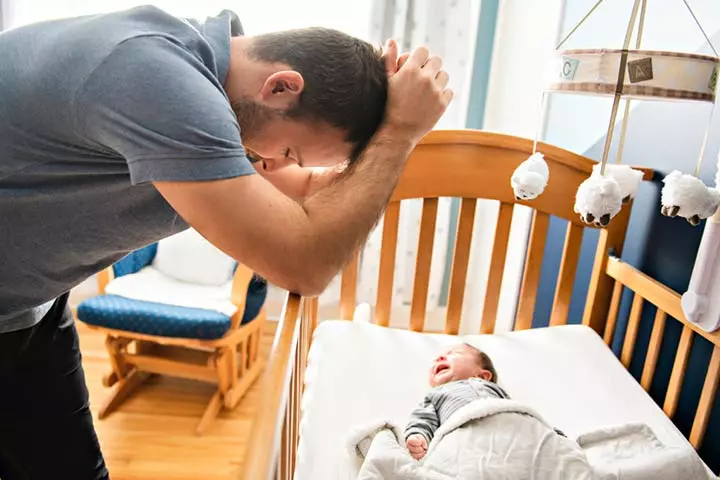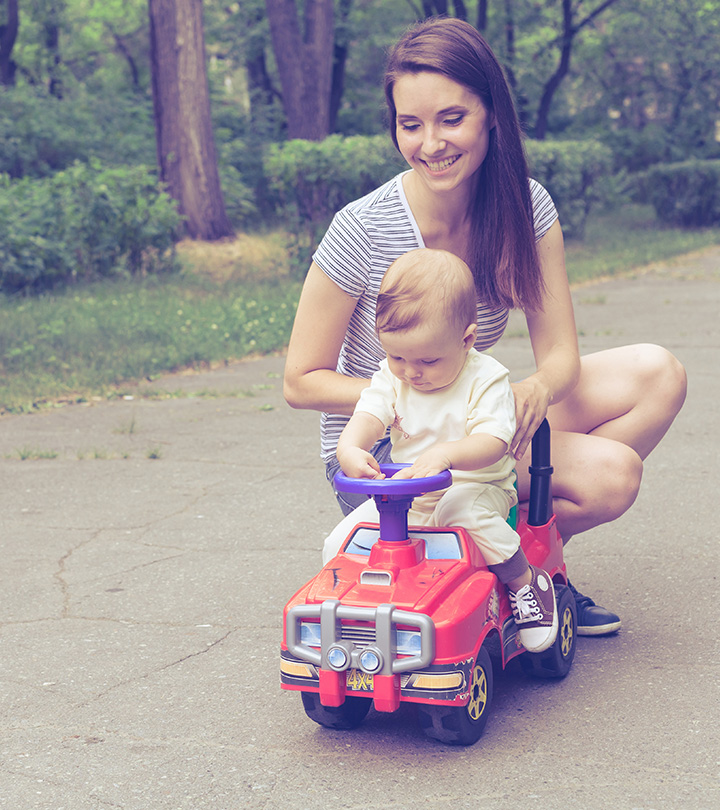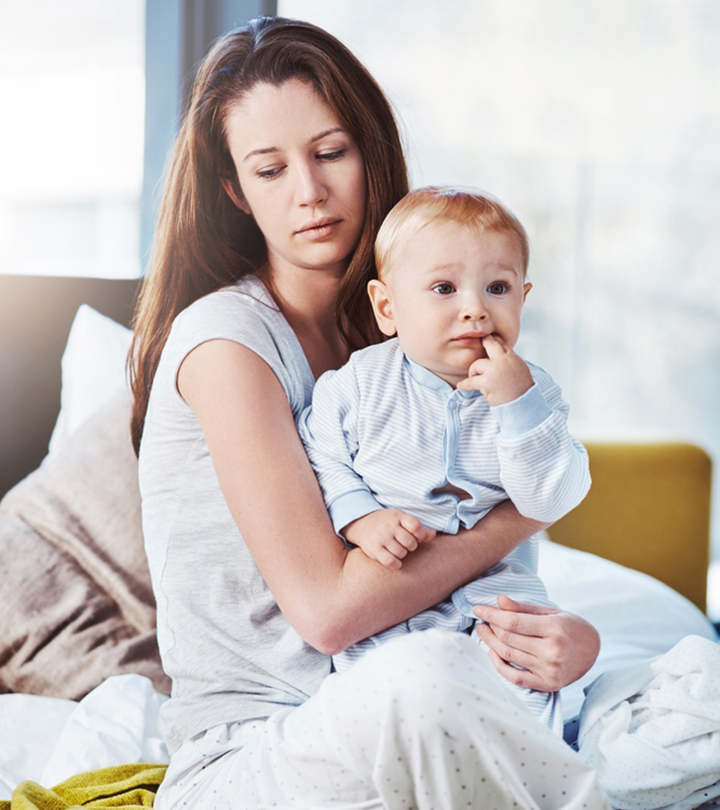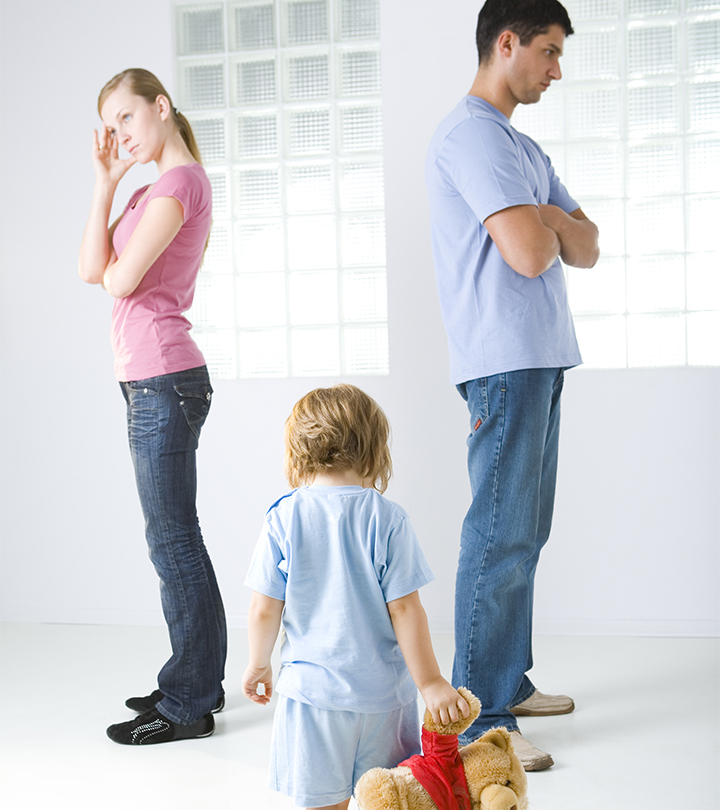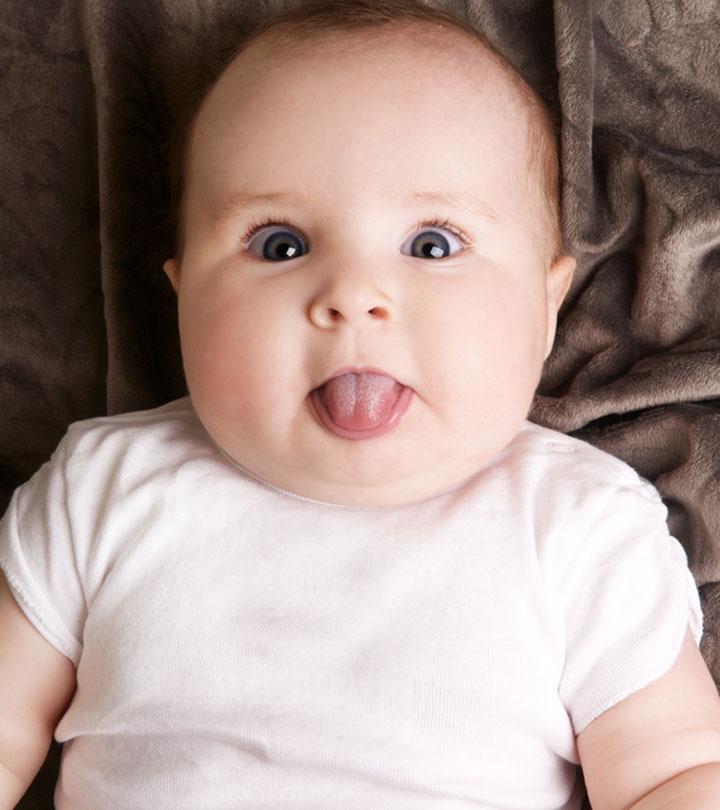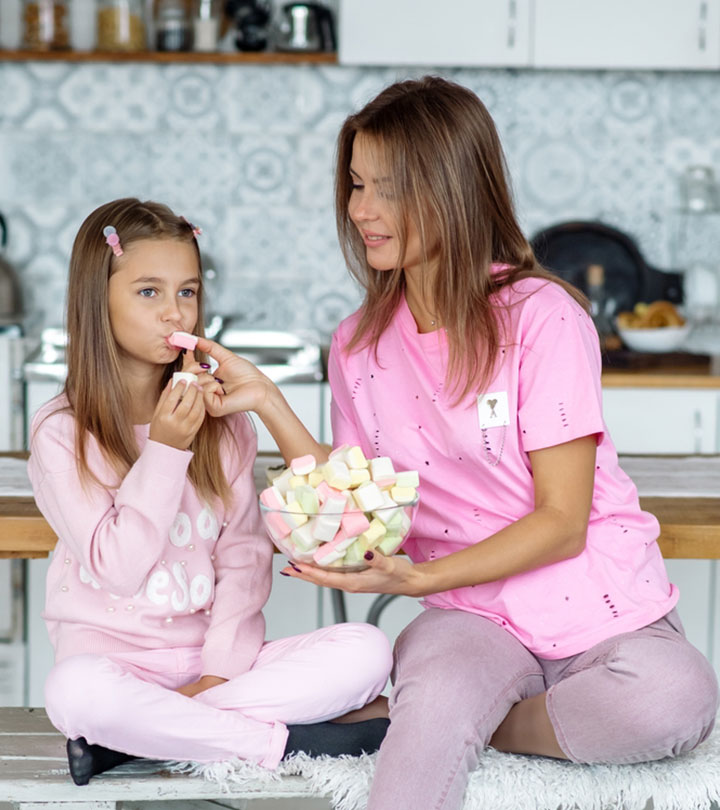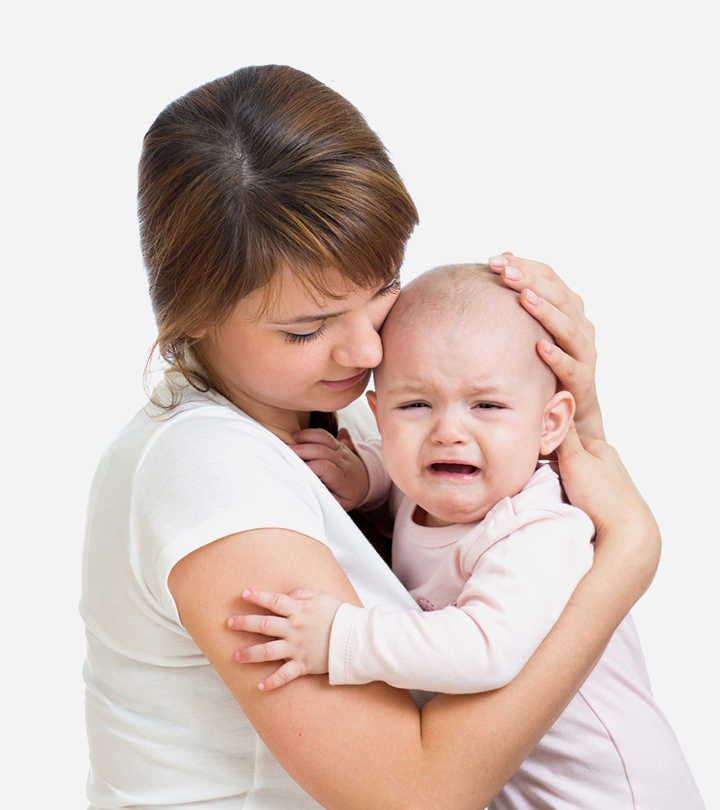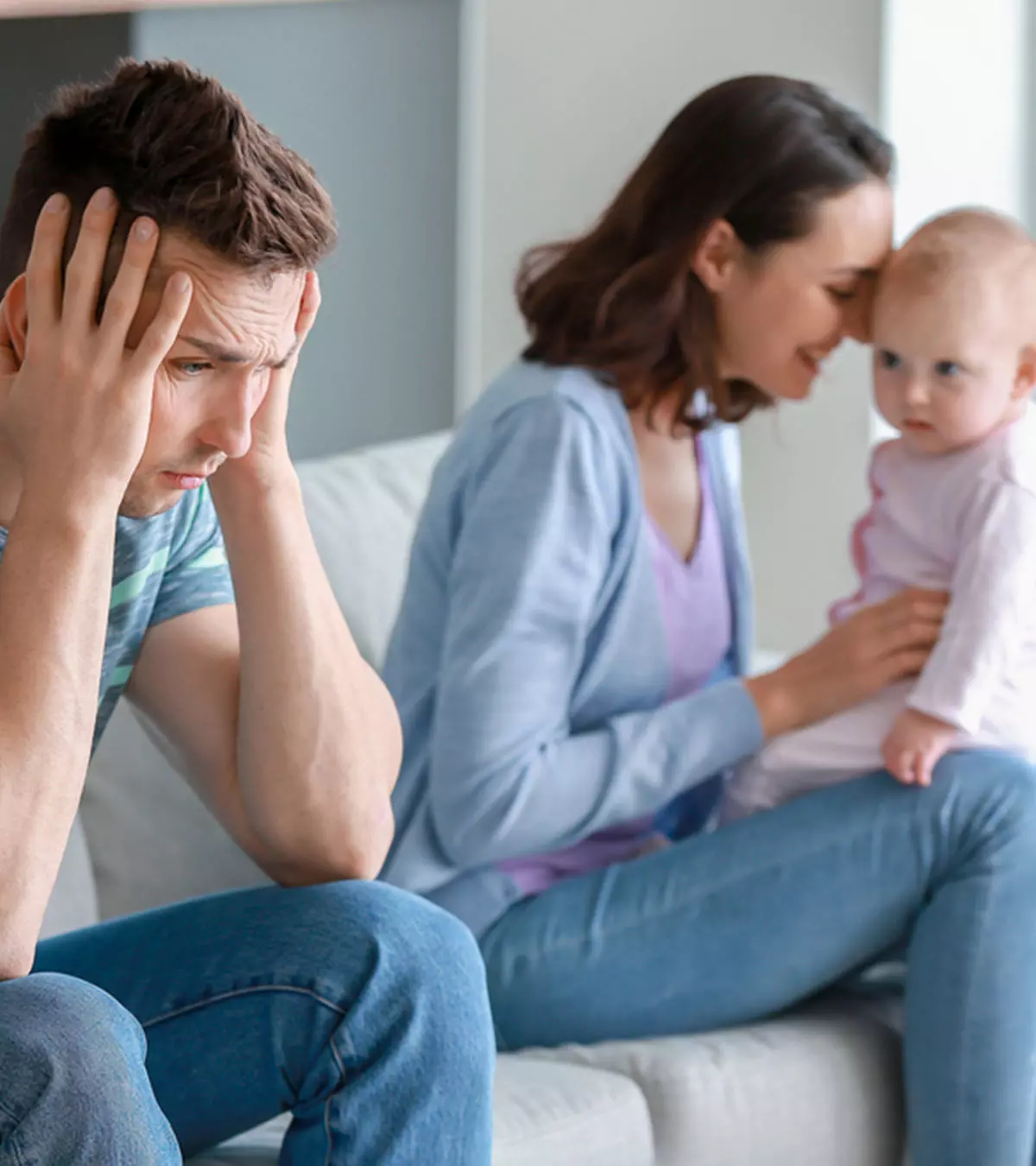
Postpartum depression among new mothers is something most of us are familiar with. But did you know that dads can experience it too? While it has been seen as a problem limited to women, research shows that dads have postpartum depression because their lives significantly change after a baby is born (1). Just like mothers have to adjust to a new life after childbirth, so do dads. Fathers have to make adjustments to their lives and fulfill demanding roles once they have a baby. Perhaps it is the added financial responsibility, or the sleepless nights of crying babies, and diaper duties, but a father’s life changes a lot.
Paternal Postpartum Depression Is Real
Some may argue that PPD pertains only to mothers because they are the ones who bear the babies. It’s the women’s bodies that undergo immense changes, and they are the ones who have to deal with nausea, heartburn, backache, moodiness, and hormonal changes. So, how is it that fathers are affected by postpartum depression?
Psychologist Scott Bea says that about 10% of fathers become depressed just before or right after the baby is born. The condition can last for about 3-6 months after the baby is born and is experienced by 1 out of 4 fathers. While mothers often go through several hormonal changes during pregnancy and after childbirth, studies show that fathers experience changes in their hormonal levels after the baby is born (2).
Reasons For Postpartum Depression In Men
Hormonal changes occur in the father, which results in a decrease in testosterone levels and an increase in depressive symptoms (3). But apart from these hormonal changes, other factors contribute to PPD in dads. Here are some of them:
1. Odd Man Out
Husbands are used to being the center of attention in their partners’ lives. But when a baby is born, this attention shifts, and fathers may start to feel like a third wheel. Mothers bond with their babies quickly, and dads may take longer, making them feel left out (4).
2. Pressure To Provide
Having a kid adds to financial responsibility, which mostly becomes the dad’s responsibility because new moms need to rest and relax after having a painful childbirth experience. This could ramp up the stress and pressure for dads.
3. Role Expectations
There is a cultural expectation that dads are supposed to love their babies, and sometimes dads do not feel it. Or it takes time to build that bond. But because of the set expectation in place, they might feel guilty and beat themselves up about it.
4. Not Getting Some Or Any
For some men, it’s as simple as not being able to get intimate with your partner. A mom has to rest and allow her body to recover before getting naughty between the sheets again. That, added to lack of sleep, can take a toll on a man’s mental health.
Signs To Look Out For
You know that your partner is suffering from postpartum depression if he exhibits the following symptoms:
- Drowns himself in work all the time
- Always angry and irritable
- Loss of interest in his favorite activity
- Being distant from family and friends
- Filled with frustration and aggression
How To Help Dads With PPD
While women have it more challenging because they are physically and mentally exhausted after having a baby, ignoring a father’s postpartum depression is not the right approach. Unfortunately, the only way around it is through self-care and support.
Follow these essential self-care tips to maintain a positive mood:
- Eat the right foods
- Sleep well
- Exercise daily
- Express yourself and talk about your feelings
- Avoid drinking, gambling, and indulging in other destructive behaviors
The most important thing to remember is that you and your partner are in this together, and you have a beautiful baby to raise. It helps to know that you are not alone, so consider talking to your fellow dad’s friends about it and remember that it will pass. Did you find our article helpful? Share it with your friends to help them!

